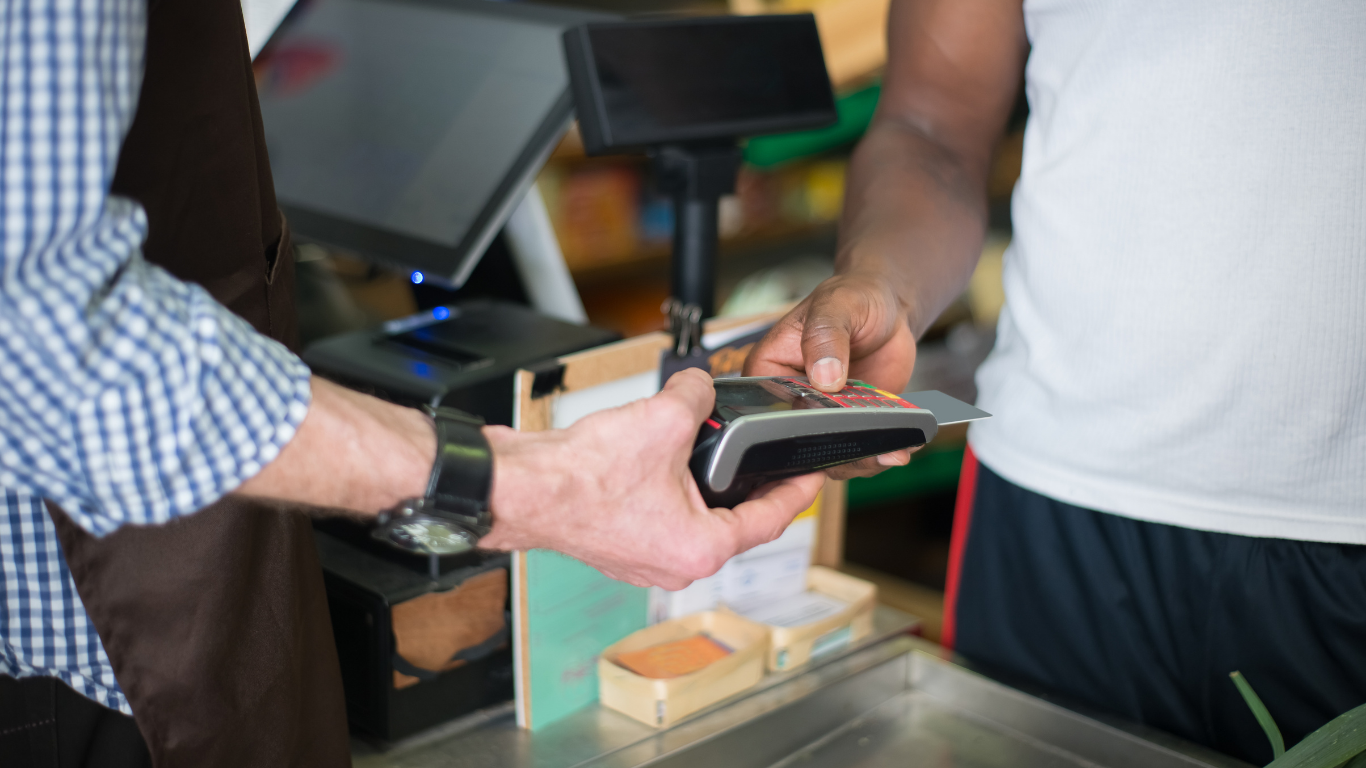
Paying by Cash or Card
Learn how to ask about payment options for public transport. This lesson provides simple, clear phrases to use with a bus driver or ticket clerk, helping you feel more confident and prepared for your journey.
BEGINNER
Vocabulary
cash
Money in the form of coins or banknotes.
- Do you take cash or card?
- I have enough cash for the ticket.
- The bus driver only accepts cash.
card
A credit or debit card used for making payments.
- I will pay with my card.
- Do you accept card payments?
- My card is not working.
Grammar Tip: Using 'Do you take...?'
The phrase 'Do you take...?' is a polite way to ask a question about accepted items or services. It shows respect to the person you are speaking with. It's a common phrase in a public setting and shows that you are a polite and respectful person.
Common Mistakes
❌ Using 'Can I pay cash?'
✅ The correct form is 'Do you take cash or card?' or 'Can I pay with cash?'
In English, 'take' is a common verb used to ask about accepted forms of payment. 'Can I pay with...' is also a polite and common phrase.
❌ Not stating your payment preference clearly.
✅ Always state your payment preference clearly and concisely. For example, say 'I will pay with my card.'
This is a simple social cue. It shows that you are being polite and respectful when you speak to a stranger.
Notes for Learners
- Be ready to make a simple request in a formal setting.
- Practice using phrases like 'Hello' and 'Thank you.'
- Listen for the person's answers and respond with a simple 'Thank you.'
- Remember to give a reason for your request to show that you are being honest and respectful.
INTERMEDIATE
Vocabulary
debit card
A card issued by a bank allowing the holder to transfer money electronically from their account to another account when making a purchase.
- Is it possible to pay with a debit card?
- I will use my debit card to pay.
- The machine accepts debit cards.
credit card
A card issued by a financial company giving the holder an option to borrow funds, usually at point of sale.
- We accept all major credit and debit cards.
- I paid with my credit card.
- Do you have a credit card?
Grammar Tip: Using 'Is it possible...?'
The phrase 'Is it possible...?' is a very polite and indirect way to ask a question. It's a great way to make a request without sounding demanding.
Common Mistakes
❌ Just saying 'Can I pay?'
✅ Add more detail to your sentence, like 'Is it possible to pay with a debit card?' This is more polite and shows respect.
Adding more information makes your speech sound more natural and engaging. It's a key part of an intermediate-level conversation.
❌ Not providing a reason.
✅ Give a more valid reason like 'I'm not familiar with the payment system here.'
This shows you are an engaged student and makes the conversation more personal and practical. A good excuse shows that you are responsible.
Notes for Learners
- Be ready to make a polite request with more detail.
- Practice using a conversational tag like 'Is it possible...?'
- Listen for more specific questions and be prepared to give a detailed answer.
- Remember to use more descriptive words like 'debit card' and 'credit card.'
ADVANCED
Vocabulary
inquire
To ask for information from someone.
- I wanted to inquire about the payment options.
- She called the office to inquire about the job.
- He will inquire about the cost of the ticket.
contactless payment
A secure payment method using a credit or debit card, key fob, or smartphone, which is activated by a close proximity to a compatible reader.
- Are you able to accept contactless payments?
- Contactless payment is very convenient.
- The machine accepts contactless payments.
Grammar Tip: Using the phrase 'I wanted to inquire about...?'
This phrase is a formal and very polite way to begin a request. It is more sophisticated and less demanding than 'Can you...?' and is perfect for professional or more detailed conversations, especially when you are ordering a specific or unusual item.
Common Mistakes
❌ Using simple language like 'Can I pay with my phone?'
✅ Use more descriptive and formal phrases like 'Are you able to accept contactless payments?'
Advanced English is about choosing the right tone and vocabulary. Using words like 'inquire' and 'contactless payment' shows a high level of fluency and a precise understanding of the situation.
❌ Not providing a clear and specific plan.
✅ Provide a clear and specific plan, e.g., 'I will be sure to be more mindful in the future. Good luck with your examination.'
This shows you are an informed person and helps the other person understand your goals more quickly and professionally. It's a key part of advanced communication.
Notes for Learners
- Open the conversation with a formal phrase like 'Good morning.'
- Be ready to use and understand specific terms like 'inquire,' 'contactless payment,' and 'efficient.'
- Acknowledge the employee's help with a phrase like 'Your assistance has been invaluable' and end the conversation professionally.
- Remember that maintaining a calm and respectful demeanor is key, even when you are frustrated.